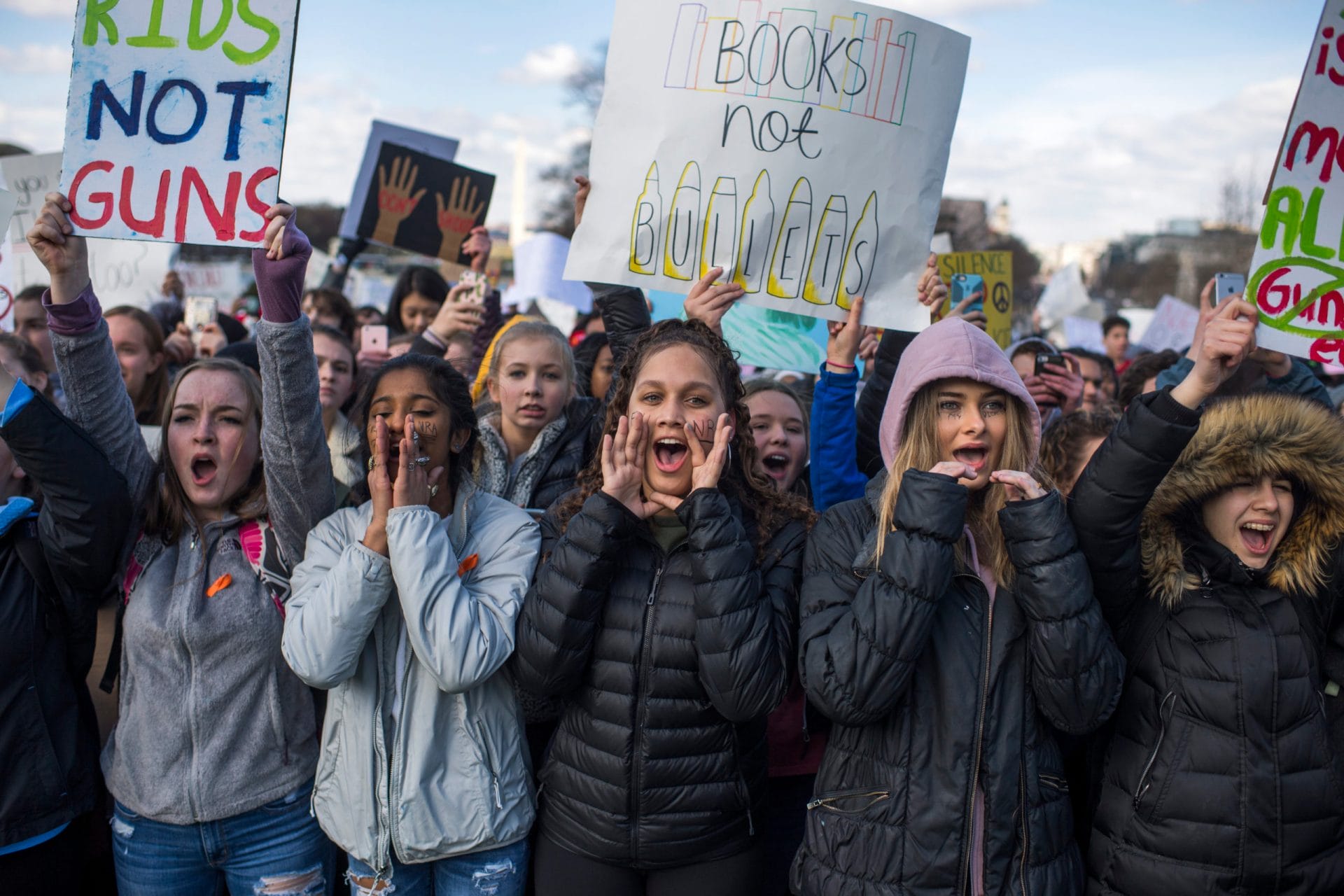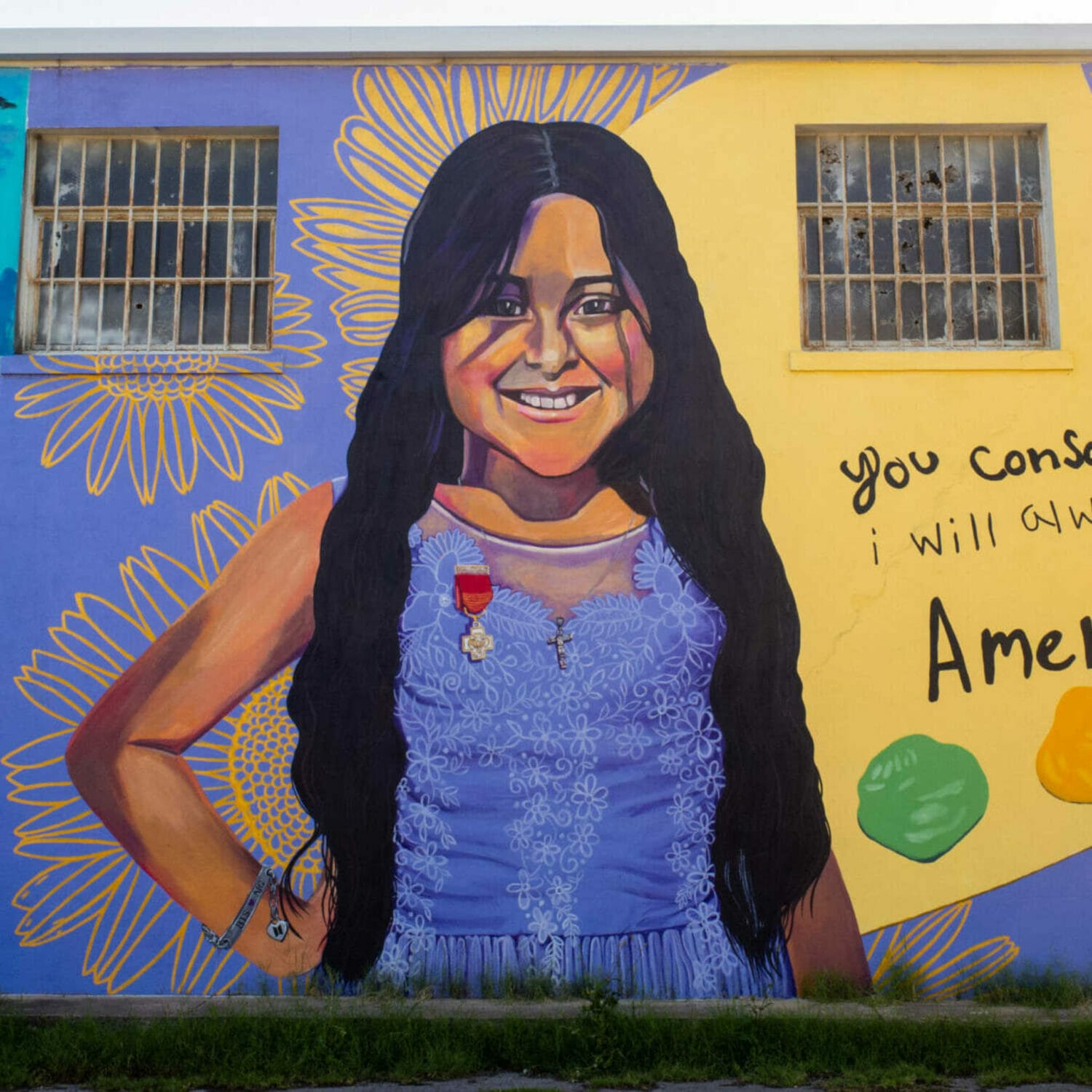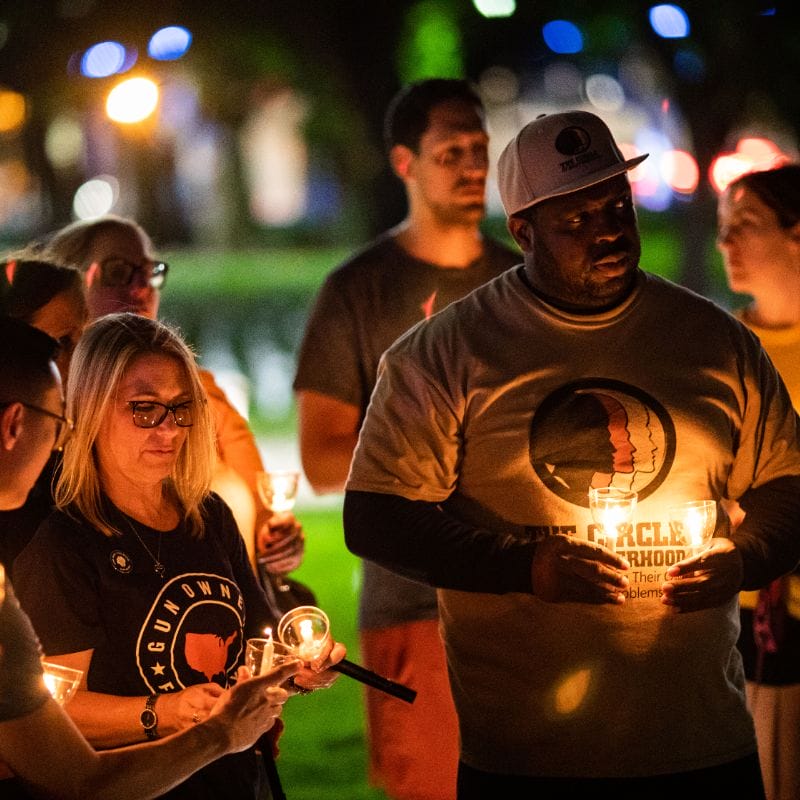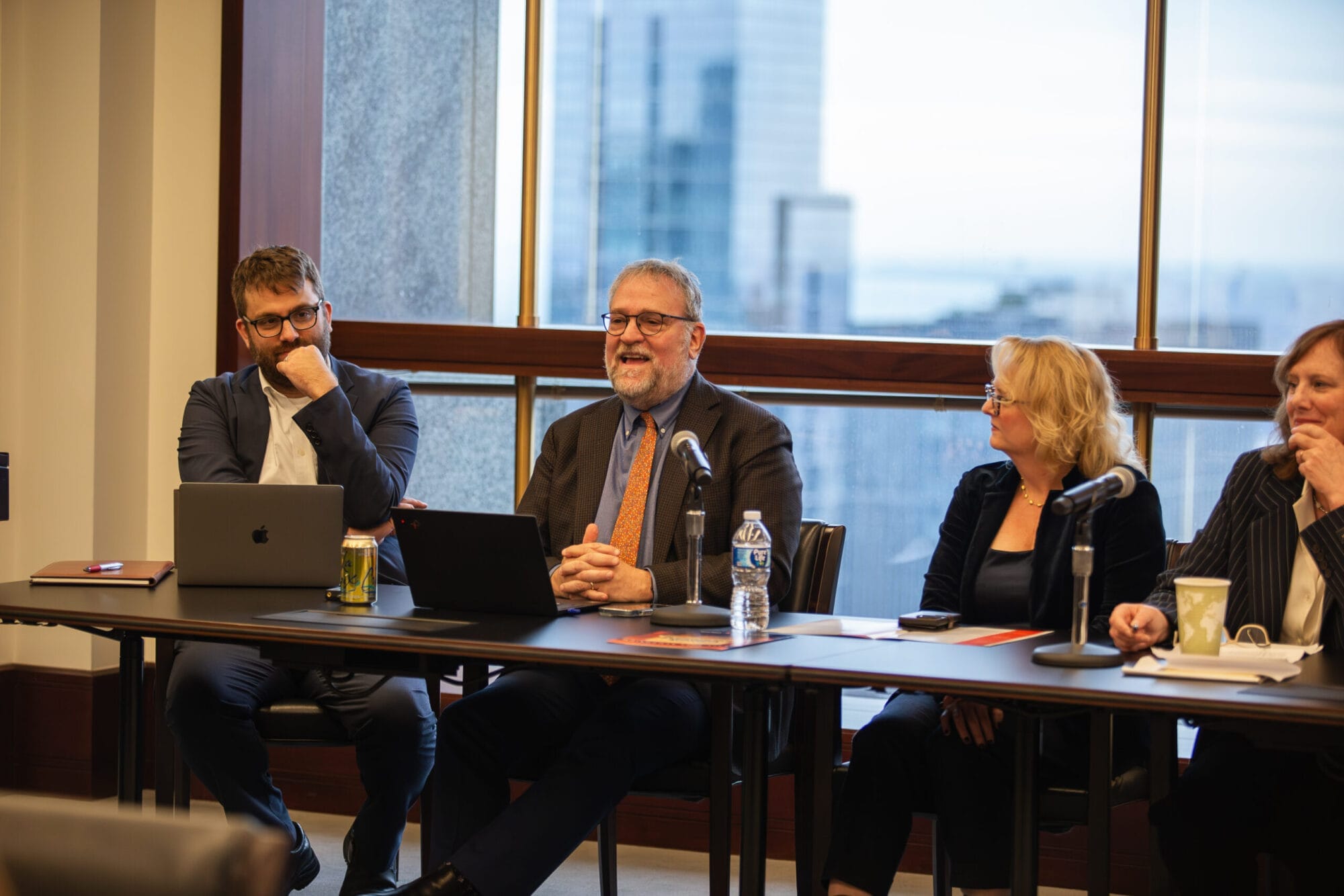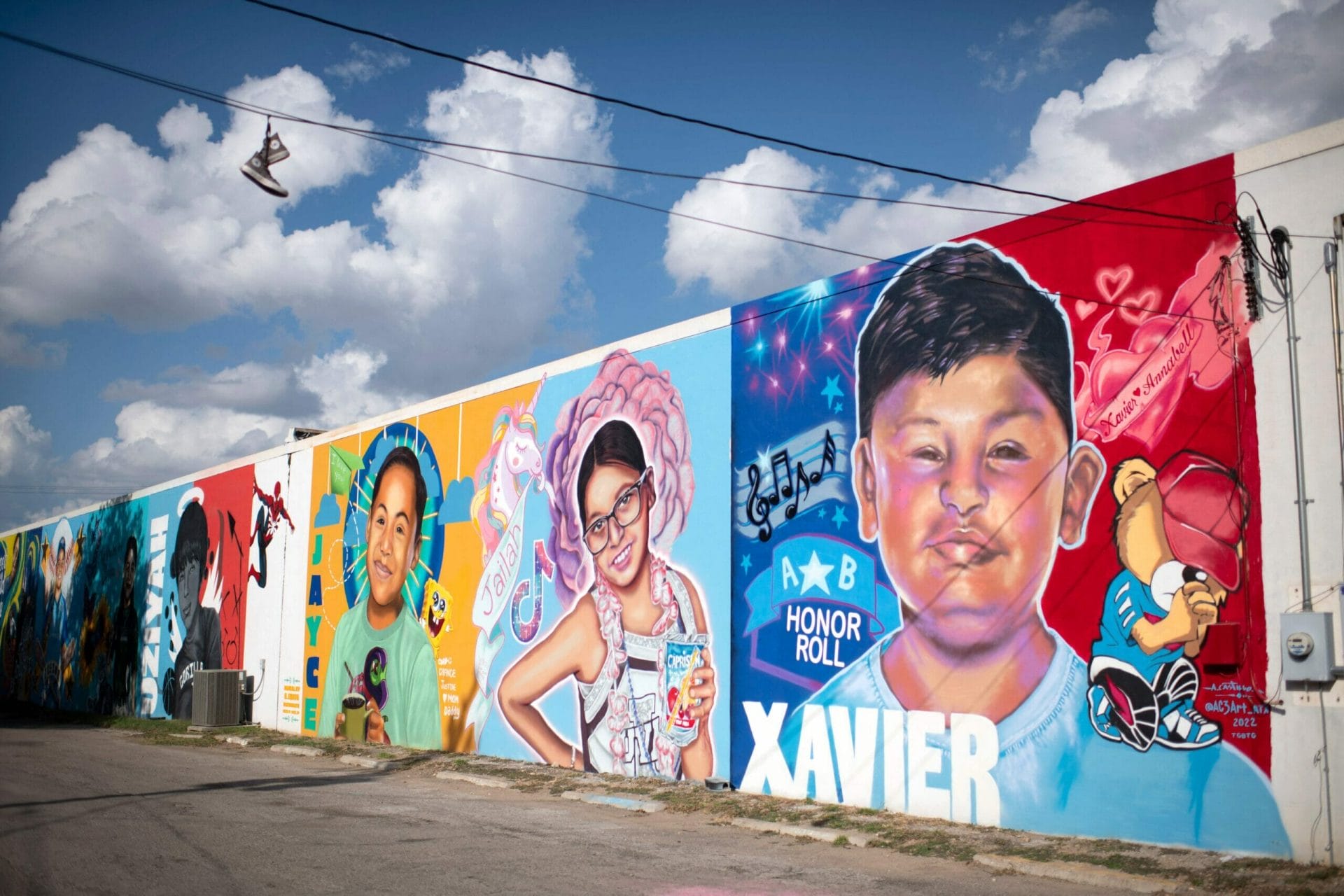
Helping Uvalde, Two Years Later
Two years after the shooting at Robb Elementary, mental health resources are more necessary than ever.
On May 24, 2022, an 18-year-old armed with an AR-15 and seven large-capacity magazines made his way into Robb Elementary School in Uvalde, Texas. For 77 minutes, he methodically executed 19 children and two teachers, in addition to wounding 17 others, before being killed by law enforcement.
Immediately following the shooting, and several times in the months after, my colleagues and I visited Uvalde, including alongside our organization’s founder, Gabby Giffords. We listened to community members as they told us their often harrowing stories, and we tried to find out what support they needed the most from local and state leaders. We spun these conversations into The Uvalde Report, an in-depth examination of the ongoing impact of the shooting. In it we highlight the community’s strengths, as well as its challenges, and we put forward a series of concrete recommendations about the changes and resources needed in Uvalde, statewide in Texas, and across the nation in order to bring healing and safety to communities impacted by gun violence.
Today marks two years since the tragedy in Uvalde. It’s clear that trauma and grief, especially when left untreated, can have a lasting, grinding impact on survivors, families, and entire communities. Often the full effects of trauma won’t even manifest until some time after the initial incident, and those effects can emerge in a number of painful ways.
To truly facilitate a path forward for a community—and a nation—struggling to heal from gun violence like the shooting at Robb Elementary, the steps are clear:
- We must increase access to mental health and support services.
- We must make sure those services take a culturally centered and trauma-informed approach.
- And we must advocate for stronger gun safety laws.
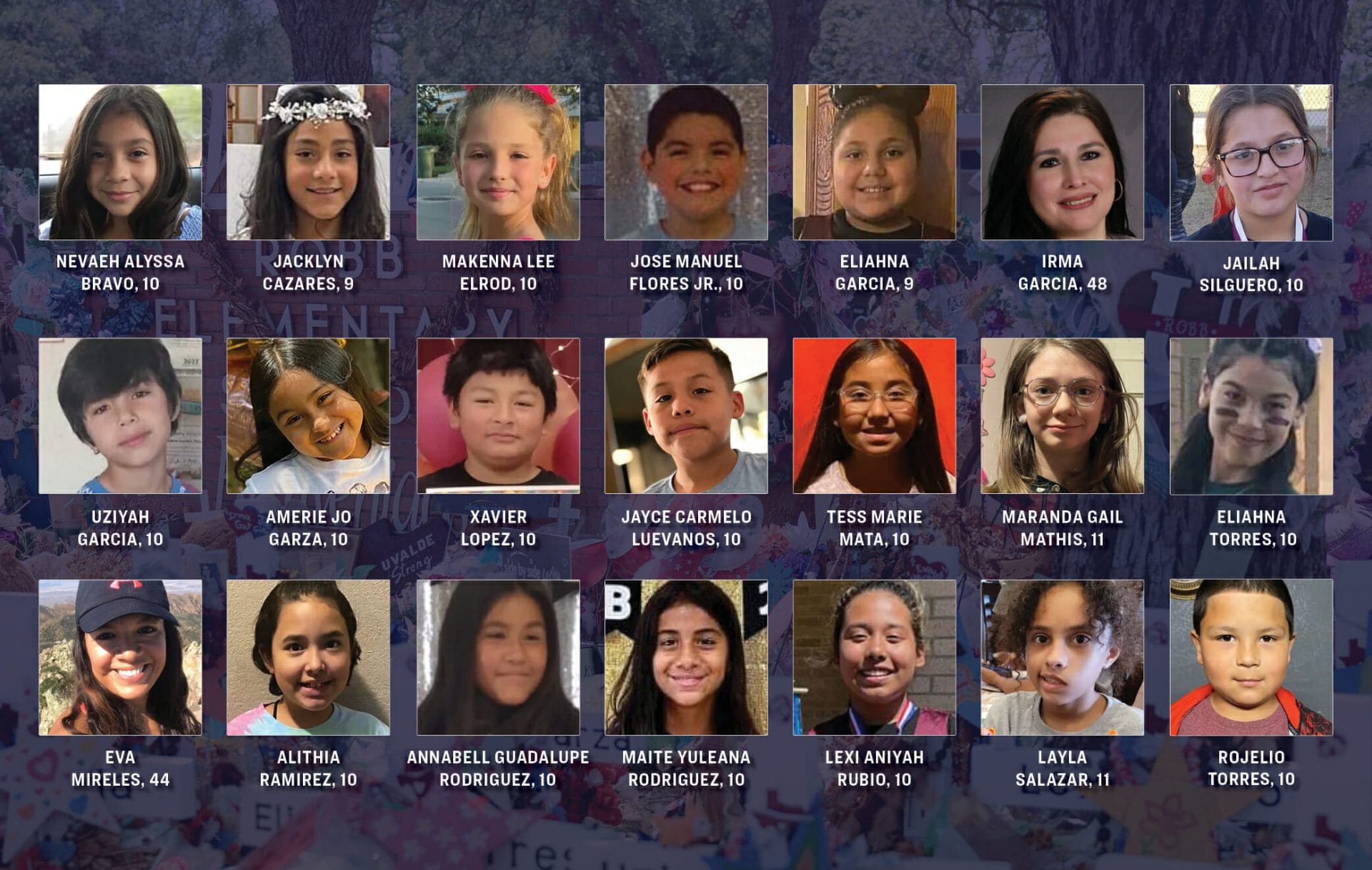
The children and educators lost in the Robb Elementary School shooting.
Develop Long-Term Mental Health Resources
Access to long-term, culturally informed mental health services is necessary to address the consequences of trauma. Uvalde residents, and Robb Elementary School students, are predominately Latino and live in a rural environment, so services should be flexible to address these cultural identities. By tailoring the services to the unique needs of each community, particularly ones marginalized by race and ethnicity, those implementing them can increase the chances that members of the community will access them—and keep coming back.
In our report, many of the impacted families discussed the importance of having access to these services and the difficulty they faced when attempting to utilize them. Trauma-related symptoms can manifest well after exposure to gun violence and can impact people both directly and indirectly exposed to harm. As a result, those most in need might miss mental health screenings immediately after the incident and consequently not be connected to appropriate supportive services.
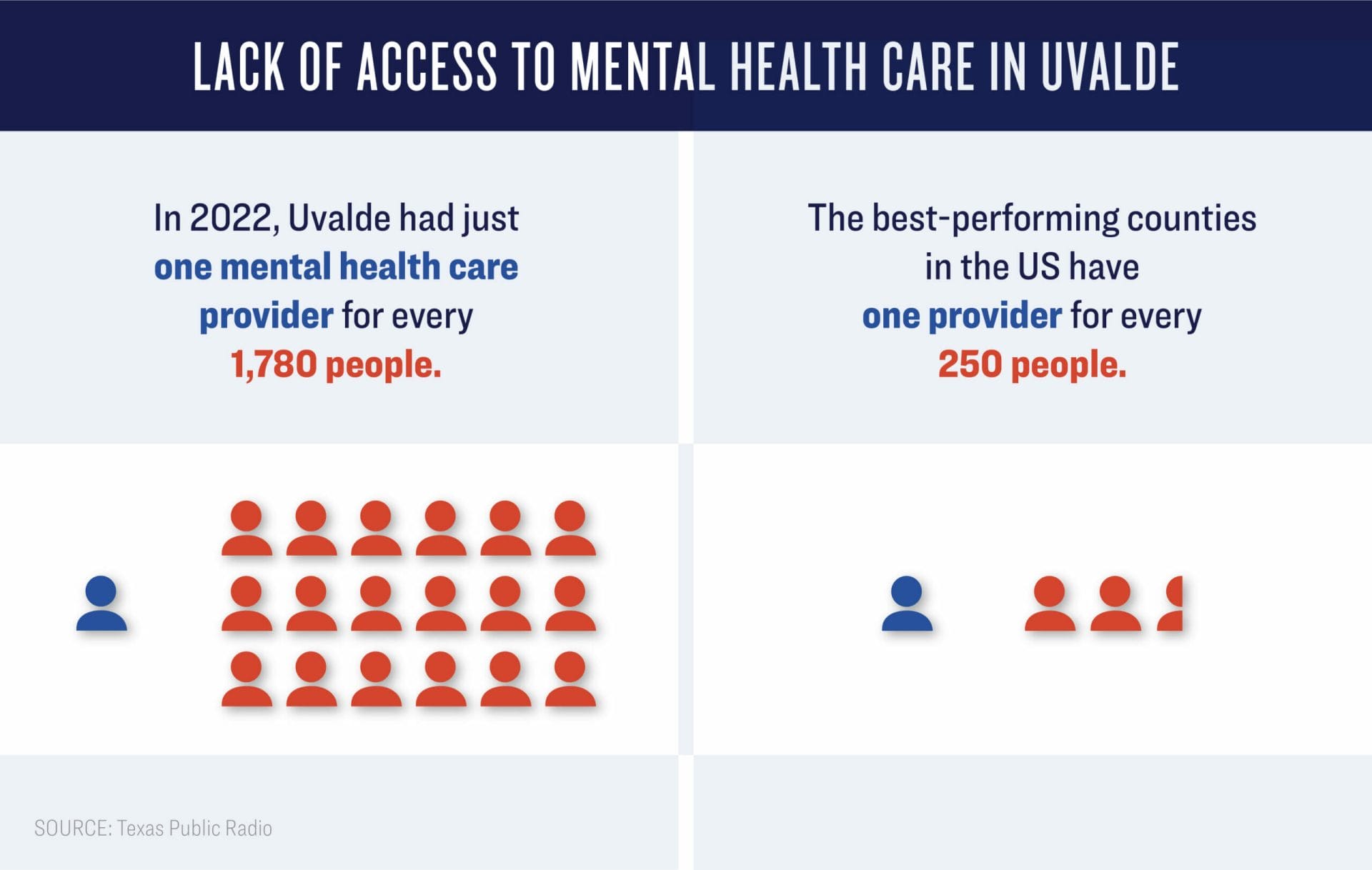
The impact of gun violence has long-term consequences for family members and future generations as they navigate their lives in the years after a shooting, including an increased risk of mental health disorders. During the critical years following their trauma, therapy and other supports offer impacted parents and families an opportunity to engage in a process of meaning-making, which has been associated with a reduction of trauma and complicated grief responses.
Another challenge is that due to the complexity of trauma-related symptoms, children—especially those who have not received treatment—are at increased risk for engaging in disruptive behavior or substance use. Unfortunately, these trauma-related behaviors tend to increase the likelihood of a child’s contact with the juvenile justice system instead of more appropriate systems of care.
Yet, despite the clear need, there continues to be a lack of access to mental health services for the impacted families in Texas.
While many recognize the need for mental health services, several barriers hinder survivors from accessing them. Because of the lack of access to culturally appropriate care, communities of color face stigma associated with seeking mental health services. Increasing access to culturally relevant services will help reduce this stigma and increase the likelihood that the people who need it will access mental health support.
Additionally, gun violence survivors experience disproportionate health-related costs after a shooting. By establishing victim compensation programs that create easy access to additional support services, state and local governments can alleviate the financial burden survivors endure, making them more likely to get the help they need.
There is also an urgent need to create trauma-informed school settings for the many children who face regular threats of gun violence. These trauma-informed schools must recognize the long-term effects of trauma and complicated grief, and must avoid both retraumatizing and responding with overly punitive strategies. By responding to the effects of trauma with exclusionary discipline (e.g., suspension, expulsion), schools may further expose and exacerbate the survivors’ trauma-related symptoms and increase those children’s risk of contact with the juvenile justice system.
Changes are on the horizon—just last month, Governor Greg Abbott announced a $34 million project to build a behavioral health campus in Uvalde—something both a Meadows Institute report and GIFFORDS has advocated for. But despite the recent investment, leaders must ensure these services are both trauma-informed and culturally centered. Doing so is crucial to increasing their accessibility and community acceptability.
Pass, Implement & Improve Gun Safety Laws
We can’t ignore one of the direct causes of the tragedy at Robb Elementary and in so many other communities—the ease with which the teenage shooter legally obtained an AR-15 assault weapon and large-capacity ammunition magazines. In addition to mental health resources, Uvalde—and all of Texas, frankly—needs stronger gun safety laws to prevent mass killings like this, as well as the smaller, “everyday” shootings that don’t make the headlines.
Source
“Republicans Fuel Bump in Support for Stricter Gun Laws Following Nashville Shooting,” Eli Yokley, Morning Consult, April 4, 2023, https://pro.morningconsult.com/instant-intel/gun-laws-control-nashville-shooting.
Gun violence takes an enormous toll on Texans, both in terms of financial costs and the trauma it leaves behind. To no one’s surprise, the state repeatedly scores an F on our Annual Gun Law Scorecard. Texas has some of the nation’s weakest gun laws, and it’s apparent: The state had more than 4,600 gun-related deaths in 2022, and tens of thousands of more injuries. In terms of lives lost, that’s the equivalent of another 220 Robb Elementary School shootings in a single year.
But instead of taking meaningful action to address this unrelenting gun violence, the state legislature and Governor Greg Abbott continue to cave to gun lobby interests and weaken existing gun laws. In 2022, mere days after the shooting in Uvalde, the NRA held its annual convention in Houston and barely acknowledged the tragedy. This year, the NRA returned to Texas and hosted its convention in Dallas—continuing to ignore its role in this crisis.
Managing trauma and complicated grief is a process that requires specific care, not just in the immediate aftermath of exposure to trauma, but throughout the lifespan of a gun violence survivor. This process also requires community input and empowerment to address barriers to care, especially in communities that have experienced historical racism and discrimination.
Communities that face these types of burdens often prove just how resilient they are in the face of a crisis, even when they lack the necessary support from local and state leaders, and the Uvalde community is no exception. Residents are advocating for themselves and fighting for what they deserve. Just look at Jesse Rizo, the uncle of one of the children killed in the massacre, and Jaclyn Gonzales, a licensed professional counselor—the two newest members of the Uvalde CISD school board. The families of the victims also just settled with the City of Uvalde and will receive a $2 million settlement. In addition to the settlement, the city agreed to overhaul its police force.
These are major wins, but more work is needed to improve the mental health of those that live with the daily reminder of their trauma. We need local and state partners, in addition to all levels of government, to step in and fight for the rights of victims, survivors, and everyone else affected by gun violence.
We recognize this here at GIFFORDS, and we work hard to keep the needs of survivors at the forefront of our decision-making.With Uvalde and countless other survivors in mind, we just launched our new state program: GIFFORDS Texas.
GIFFORDS Texas will engage communities across the state who have been impacted by gun violence, including Latinos, survivors, gun owners, and youth. The program will also dedicate resources to shape commonsense gun safety policy that better reflects the priorities of Texans. We’re in this fight for the long haul in the Lone Star state. We won’t give up until we have the changes that Uvalde families—and all Texans—deserve.
But for now, on the second anniversary of the Uvalde shooting, our hearts are with the victims, survivors, and their families. I’m honored to have been able to meet and speak with members of the community, and to continue fighting alongside them for what they need.
TAKE ACTION
The gun safety movement is on the march: Americans from different background are united in standing up for safer schools and communities. Join us to make your voice heard and power our next wave of victories.
GET INVOLVED